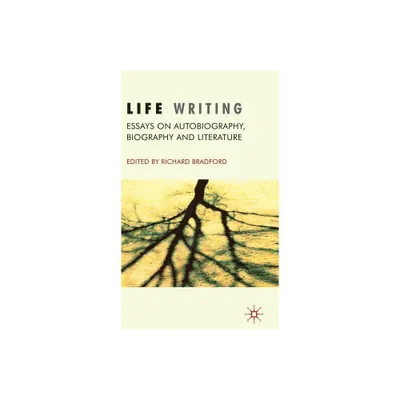Home
Recovering Bodies: Illness, Disability, and Life Writing
Loading Inventory...
Barnes and Noble
Recovering Bodies: Illness, Disability, and Life Writing
Current price: $55.00


Barnes and Noble
Recovering Bodies: Illness, Disability, and Life Writing
Current price: $55.00
Loading Inventory...
Size: OS
*Product Information may vary - to confirm product availability, pricing, and additional information please contact Barnes and Noble
This is a provocative look at writing by and about people with illness or disability—in particular HIV/AIDS, breast cancer, deafness, and paralysis—who challenge the stigmas attached to their conditions by telling their lives in their own ways and on their own terms. Discussing memoirs, diaries, collaborative narratives, photo documentaries, essays, and other forms of life writing, G. Thomas Couser shows that these books are not primarily records of medical conditions; they are a means for individuals to recover their bodies (or those of loved ones) from marginalization and impersonal medical discourse.
Responding to the recent growth of illness and disability narratives in the United States—such works as Juliet Wittman’s
Breast Cancer Journal
, John Hockenberry’s
Moving Violations
, Paul Monette’s
Borrowed Time: An AIDS Memoir
, and Lou Ann Walker’s
A Loss for Words: The Story of Deafness in a Family
—Couser addresses questions of both poetics and politics. He examines why and under what circumstances individuals choose to write about illness or disability; what role plot plays in such narratives; how and whether closure is achieved; who assumes the prerogative of narration; which conditions are most often represented; and which literary conventions lend themselves to representing particular conditions. By tracing the development of new subgenres of personal narrative in our time, this book explores how explicit consideration of illness and disability has enriched the repertoire of life writing. In addition, Couser’s discussion of medical discourse joins the current debate about whether the biomedical model is entirely conducive to humane care for ill and disabled people.
With its sympathetic critique of the testimony of those most affected by these conditions,
Recovering Bodies
contributes to an understanding of the relations among bodily dysfunction, cultural conventions, and identity in contemporary America.
Responding to the recent growth of illness and disability narratives in the United States—such works as Juliet Wittman’s
Breast Cancer Journal
, John Hockenberry’s
Moving Violations
, Paul Monette’s
Borrowed Time: An AIDS Memoir
, and Lou Ann Walker’s
A Loss for Words: The Story of Deafness in a Family
—Couser addresses questions of both poetics and politics. He examines why and under what circumstances individuals choose to write about illness or disability; what role plot plays in such narratives; how and whether closure is achieved; who assumes the prerogative of narration; which conditions are most often represented; and which literary conventions lend themselves to representing particular conditions. By tracing the development of new subgenres of personal narrative in our time, this book explores how explicit consideration of illness and disability has enriched the repertoire of life writing. In addition, Couser’s discussion of medical discourse joins the current debate about whether the biomedical model is entirely conducive to humane care for ill and disabled people.
With its sympathetic critique of the testimony of those most affected by these conditions,
Recovering Bodies
contributes to an understanding of the relations among bodily dysfunction, cultural conventions, and identity in contemporary America.


















